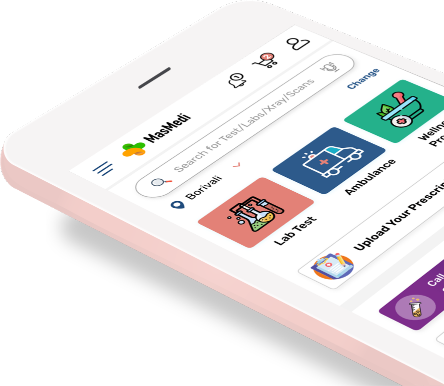Sample Type
Gender
Age Group
Blood
Male/Female
All Age Group
Decrease in hemoglobin level or number of red blood cells (RBC) leads to anaemia. This affect oxygen carrying capacity of blood to various tissues and organs. Commonest cause is nutritional deficiency of iron, vitamin B12 and folic acid. This can be due to either a lack of these substances in the diet, an increased loss that cannot be compensated by diet alone or an increased unmet demand during pregnancy and lactation. Few of hereditary haemolytic anaemias include Hemoglobinopathies (Thalassemias, Sickle cell anaemia etc.), enzyme deficiency disorders (G6PD deficiency). Acquired Haemolytic Anaemias like Autoimmune Haemolytic Anaemias, Microangiopathic haemolytic anaemia are also common in Indian population. Common symptoms of anaemia include difficulty in fatigue, weakness, tiredness, irritability, headache, shortness of breath. Anaemia Profile-Maxi includes both & specialised tests to identify anaemia and its cause
Anaemia Profile-Maxi includes 16 Test(s)
best labs
Option Near Youlab comparison
As per your budgetAffordable
Price GuaranteedUNBIASED ADVICE
On LabsSUNDAY LAB
Labs available on SundaysTracking health status made easy with the app. Now available on both Google Play Store and App Store. Book health tests and access your smart reports and health trackers anytime anywhere.
